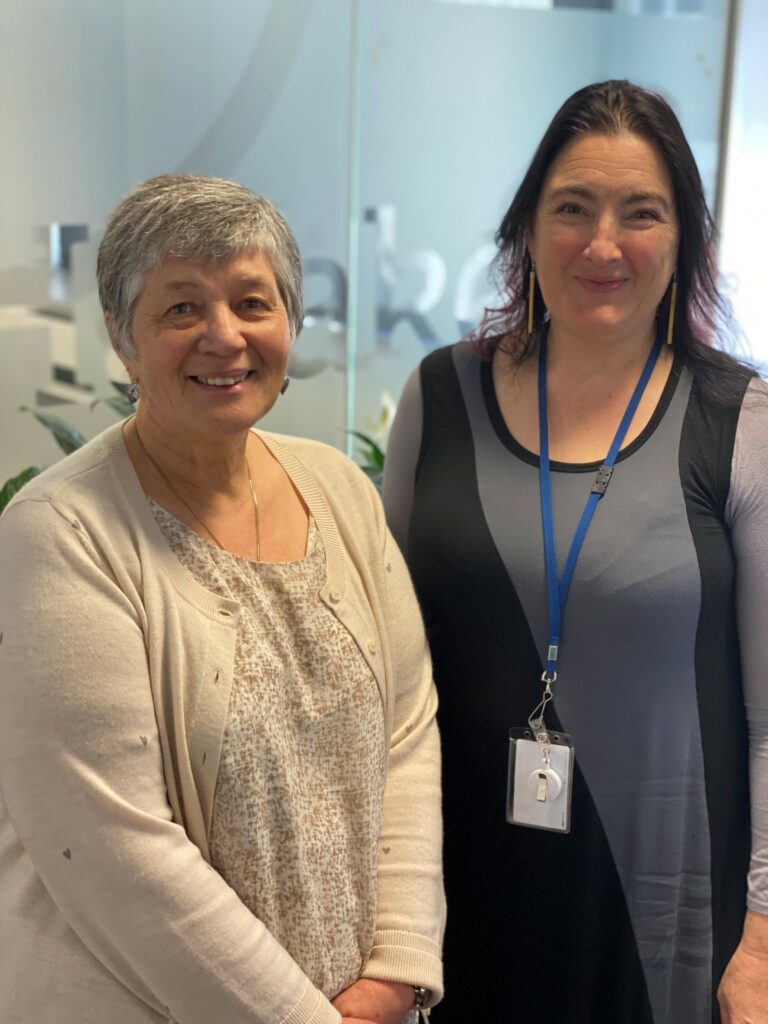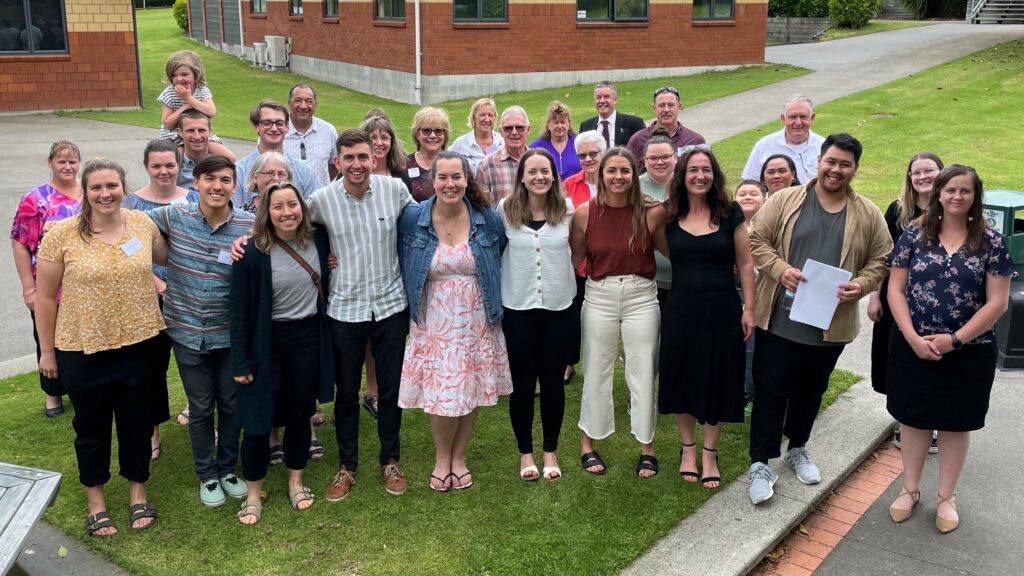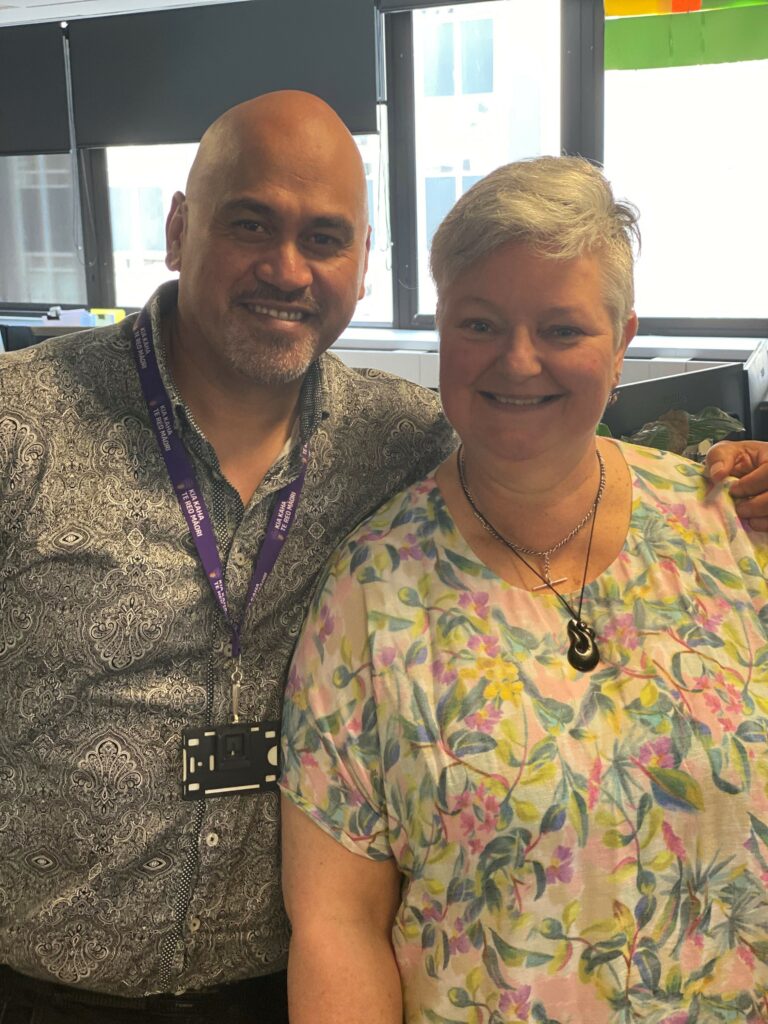He ara pūkenga, he ara tauwhiro, hei whakamana mātā waka.
Tēnā koutou katoa,

Our whakataukī continues to shape us and underpin our development as a modern regulator.
He ara pūkenga. Knowledge and being evidence-based are essential to our role, whether in workforce planning, enhancing the professionalism of social workers, or as a regulator – ensuring social workers are competent, fit to practise and accountable.
To that end, we are currently completing a few key pieces of work that we think will be of value and interest to the sector. The report from our Annual Workforce Survey is due to be published by the end of the year. And in our last newsletter we asked you about the demand for social workers and the number of outstanding social worker vacancies that organisations are having to manage. The survey has now closed, and once we’ve pulled the results together we will share them in a future Onboard.
A reminder that submissions on fees and the disciplinary levy remain open until 1 December. We have included some additional information as part of the Q&As in response to queries we’ve received as part of the consultation.
He ara tauwhiro. In this Onboard, you can see our social work team has been busy in the education space, and also with the recruitment of a new social worker to join the team. We are delighted to welcome Carina Jansen to our SWRB whānau. It’s really important for us as a regulator to have a strong social work voice inform our advice, and share information that is useful for the sector. As an example, in this issue you will find the result of a recent Tribunal decision and insights and learning for all practitioners that can be drawn from the case.
Hei whakamana mātā waka. We acknowledge the extremely challenging conditions so many of you are working under right now with very little respite. The gradual easing of restrictions will no doubt be welcome for those who have been living under Alert Levels 3 and 4 since August, but the changing circumstances can also be a source of anxiety. We are grateful for all the work you are doing with whānau and communities who are most affected by the impact of COVID-19; once again demonstrating the importance of social workers across Aotearoa New Zealand.
Kia kaha, kia toa, kia manawanui.
Sarah Clark, Chief Executive
Visit to Bethlehem Tertiary Institute
One of our roles in social work education is to recognise social work qualifications that meet our Programme Recognition Standards (PRS). This month, SWRB Staff Catherine Hughes, Chief Advisor Social Work and Andrew Thompson, Senior Advisor Social Work went to Bethlehem Tertiary Institute (BTI) in Tauranga for two days as part of the ongoing series of programme recognition visits with social work institutes. BTI is a private, faith-based tertiary education provider.
Day one opened with a mihi whakatau guided by Tauha Te Kani. Everyone was saddened by the recent passing of kaumātua Huikākahu Brian Kawe, whose presence and influence were remarked upon with gratitude many times during the visit. A valuable day was spent with the teaching team at BTI.
On day two, Catherine and Andrew attended a symposium as part of the assessment panel for the graduating class. The students presented on their metaphor for practice and how it aligned with the BTI graduate profile, ANZASW Code of Ethics and the SWRB Code of Conduct and 10 Core Competencies. This this was a great opportunity for the SWRB to gain insight into the curriculum in action.
Here is a photo from their trip with the presenting students and their whānau.

Appointment to the Social Workers Registration Board
As mentioned in our October newsletter, the Minister of Social Development (the Minister) is seeking nominations for a Registered Social Worker member to the Social Workers Registration Board. For details and instructions on how to apply, click here.
Applications closing date: 26 November 2021. This has been extended from the previously announced closing date. Late applications may be accepted.
Nau mai, haere mai our Senior Advisor Social Work

Ko Mana tōku maunga Mana is my mountain
Ko Aroha te moana And Aroha is my sea
Ko Whānau tōku waka Whānau is my waka
Ko au e tū atu nei And all of that is me
Ko Carina Jansen tōku ingoa
Tēnā koutou katoa
As a Dutch immigrant to Aotearoa, I am particularly drawn to those lovely words by SIX60 as part of my pepeha.
My first day at the SWRB was on 8th November 2021 which commenced with a lovely mihi whakatau for which I am grateful. My role is senior advisor social work in the sector support and engagement team.
I was born in Amsterdam, Netherlands where we lived until I was 12 years old when we immigrated to Aotearoa. My family roots on my father’s side go back to the 1580’s largely in Amsterdam, Netherlands and my mother’s side since the 1660’s in Java, Indonesia.
I am a qualified, registered Social Worker. I have qualifications in Social Work (Massey) and Clinical Supervision which I see as being inextricably linked for quality practice.
I have practised social work for over 30 years in a variety of roles as a practitioner, supervisor and in leadership roles across various sectors in social work, especially in the field of child protection and forensic interviewing. Parallel with this is a long history of working alongside and training professionals to recognise, create policy and work in ways to build social work staff capability.
I have some experience in tertiary lecturing and clinical supervision of student placements ensuring an understanding of the tertiary environment and practical application.
My commitment has been to make a positive difference for tamariki, rangitahi and whānau in Aotearoa and especially those who are disadvantaged and vulnerable. I am equally committed to the need for a professional workforce to deliver this critical mahi and for social work to be recognised as a profession in its own right.
Education Providers Report
The Education Providers Report for the 2020 academic year is due to be published before the end of the year. The survey provides insights into Social Work education and includes demographic information about students enrolled in social work programmes. We would like to thank the institutions for their participation.
Here are a few headlines from the report:
- 2665 students were enrolled in social work programmes in 2020 (down from 2927 in 2019)
- 480 students were studying part time
- 2282 enrolled students identified as female, 373 identified as male and 9 identified as gender diverse
- 32% of enrolled students were 24 or younger, 22% were aged between 30-39
- 45% of students identified as Pākehā making up the largest ethnic group. 31% of students identifying as New Zealand Māori. Note that students can choose multiple ethnicities.
Further details will be made available when we have had an opportunity to share the findings with providers.
Learnings for social workers from a recent social work Tribunal case
A recent Social Workers Complaints and Disciplinary Tribunal case highlights complexities for social workers between professional practice and personal life, and the need to constantly self-monitor potential conflicts of interest and professional boundaries.
A statutory care and protection social worker was found to have accessed the CYRAS client records of family members a number of times over several years.
The social worker and her partner also completed a caregiver assessment to assess their suitability to care for two of their grandchildren. The social worker accessed client files several times to check on the progress of the FGC process. There appears not to be any suggestion of tampering with files, or lengthy scrutinizing of them, however the Tribunal found that the social worker used her professional role to access information for personal purposes.
The social worker was also found to have used a report she submitted as part of a parenting assessment in 2013, for another purpose three years later. This, despite a statement on the front page of the report clearly stating that it was confidential and not to be copied or released without the permission of CYF specialist services.
This case was further complicated by the social worker’s work environment. The Tribunal noted a lack of consistency in the workplace applying a confidential classification to client records where clients were connected to the social worker, inconsistent access to professional supervision, high caseload, a high stress work environment, and little time to think about professional development. The social worker advised that she had received no induction training at the time of employment with CYF, and no training on the SWRB Code of Conduct.
The Tribunal took all of this into consideration, noted that the social worker had worked constructively with the Professional Conduct Committee (PCC) and the Tribunal, and was a hardworking and committed social work practitioner. She lost her job as a result of this complaint and was not practising at the time of the Tribunal hearing.
The Tribunal found that the social worker had acted in breach of principle 1.1 of the Code of Conduct. This requires social workers to act honestly and ethically in all personal and professional behaviour. The Tribunal also found that the social worker was in breach of principle 3 which includes requiring social workers to maintain professional objectivity. Her relationship with the clients of CYF services in this case was a personal one only, however she acted as if she had a professional role.
The social worker was found to be in breach of principle 7, Respect the client’s privacy and confidentiality. She had no right to access or add to information on file for anyone who was not her client, nor should she have used organisational documents without permission, or for purposes other than that intended.
The Tribunal considered that the social worker was in breach of principle 9 of the Code of Conduct, and that her actions were not consistent with the requirement for social workers to maintain a high standard of professional and personal behaviour, and could compromise public trust and confidence in the social work profession.
Additional statement on Covid-19 vaccination
In October we published guidance for social workers on our website: Guidance for social workers on social media and Covid-19 vaccination messages.
We continued to receive questions from social workers and therefore published an additional statement this month: SWRB statement on vaccination
We encourage social workers to read the guidance provided by the Aotearoa New Zealand Association of Social Workers. See COVID-19 (anzasw.nz)
We also encourage social workers to read the Ministry of Health guidance relating to mandatory vaccination. See: COVID-19: Mandatory vaccinations
Social workers with concerns about the vaccination requirements of their workplace should address these to their employer. For those who are self-employed, it is important to follow the guidance from the Ministry of Health. The Ministry of Health guidance covers mandatory vaccination information for the education sector and corrections sector as well as the health and disability sector.
Registration with the SWRB is not affected by vaccination and employment status. However, we remind social workers of our Code of Conduct which covers the professional standards of behaviour, integrity and conduct that apply to registered social workers.
Fees and Disciplinary Levy Consultation – reminder!
Ngā mihi maioha kia a koutou i runga i ēnei āhuatanga o te wā.
We released consultation on proposals to change our fees and the disciplinary levy for social workers in Aotearoa at the start of this month. Just a reminder, this consultation closes at 5pm, Wednesday 1 December 2021.
You can download the consultation document from the Fees and Disciplinary Levy consultation website. This contains all the information and rationale for the proposed changes. You may then submit your response by:
- filling in the online submission form, or
- emailing a written submission.
If you have any questions, you may be able to find the answer in the link for Frequently Asked Questions or email submissions@swrb.govt.nz.
Ngā mihi nui ki a koutou katoa, thank you to everyone who has taken the time to submit their views on the consultation so far. At the time of writing (18 November) 145 of you have taken the time to complete the online submission form, in addition to numerous emails received directly. All submissions received by the deadline will be assessed and collated into the report for our Board.
Te huarahi tūmahi wheako – Experience pathway S13
For social workers who are applying to register with us through the experience pathway route, we have recently added the updated Experience Pathway: S13 Template to our website.
The template is used to provide information in support of your application for the Board’s consideration, including:
- the story of your pathway into social work
- your relevant social work employment history
- a description of your most significant social work practice experiences in Aotearoa New Zealand
- evidence and reflection on your professional supervision
- a practice study demonstrating your social work competence, and
- a self-reflection on the SWRB Core Competence Standards
Please remember, this pathway is only for applicants who have significant experience practising in NZ and do not have a qualification recognised by the SWRB. We provide details of NZ recognised qualifications recognised by us for the purposes of registration, including historical qualifications, on our website.

